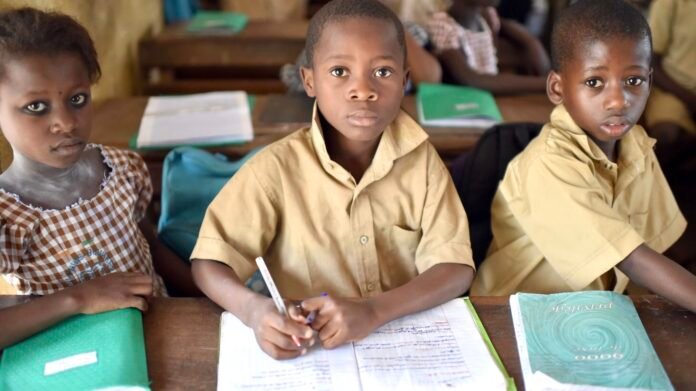Sub-Saharan African governments are feeding 20 million more schoolchildren than they did just two years ago, according to a new United Nations report released Wednesday.
The State of School Feeding Worldwide, a flagship global biennial report by the United Nations World Food Programme (WFP), said the surge marked a 30 percent increase in school meal coverage and signals a major shift toward domestic investment in education, nutrition and inclusive development.
“The African continent has seen the most significant rise of any region, with the number of children receiving school meals rising by over 30 percent from 66 million in 2022 to 87 million in 2024,” the report said.
Chad, Ethiopia, Madagascar and Rwanda were cited as countries where the number of pupils receiving school meals have increased sixfold.
“Government investments in school meals in Sub-Saharan Africa have also increased, signalling a significant shift from reliance on foreign aid to recognising school meals as a strategic public investment in children’s education, health and broader national development.”
In countries like Benin, Botswana, Burkina Faso, Eswatini, Lesotho, Namibia, Rwanda and Zambia, school meal programmes are mainly funded through national budgets.
“Other governments such as Ethiopia and Burundi have doubled and tripled their respective contributions since 2022, while still receiving some funding from external sources,” the report said.
WFP Regional Director for Eastern and Southern Africa, Eric Perdison said “sourcing food locally provides healthy, culturally appropriate meals for children while supporting smallholder farmers, driving economic growth and national development.”
“A meal at school is more than just giving food to a child; it is also an investment in the family, the community, and ultimately a country’s future,” Perdison said.
The report highlighted the broader economic impact of home-grown school feeding models.
In Benin, local food procurement injected over US$23 million into the economy in 2024, with direct purchases from smallholder farmers increasing by 800 percent.
In Burundi, farmers’ incomes rose by 50 percent and 67 cooperatives created jobs for 20,000 members.
Malawi’s programme generates US$8 in economic benefits for every dollar spent.
In Sierra Leone, 40 percent of school meal food came from smallholder farmers – mainly women and youth – while Kenya, Rwanda and Uganda are pioneering eco-friendly diets through school gardens and climate-smart agriculture supported by international partners.
The report noted that despite progress, millions of children in fragile states such as the Democratic Republic of Congo, Somalia and South Sudan still lacked access to school meals due to low domestic funding and declining donor support.
The UN agency said it would continue prioritising these settings to safeguard learning and nutrition.
The report comes ahead of the second School Meals Coalition Global Summit in Brazil on 18–19 September where leaders will assess progress and mobilise further action.
Source:Reuters








